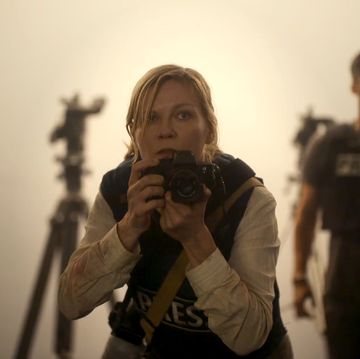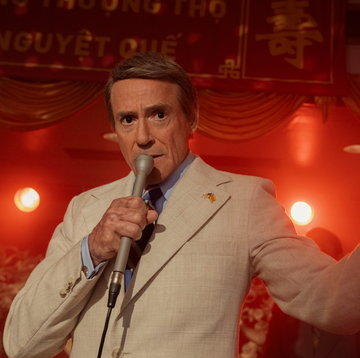The word "selfie" is comprised of six letters, 67 percent of which are devoted to describing a single being. Self. Society of Me. It takes more keystrokes to spell "selfless" than "selfish." Most colloquial uses of "self" used to warrant a front-loaded modifier: myself, yourself, hisself, herself. All of these have been swallowed whole by the omnipresent selfie, which has evolved into more of an ideology than a simple photograph. A poem or a story or a song or a painting used to serve as a vehicle for self-expression, a way to discover a hidden truth. Now, with a two-way camera always at the ready, the self is both the medium and the message. We don't take a picture of a beach, we take a picture of our temporary inhabitance of that beach. Sand is but one background in one fleeting moment. The self, with its outstretched arm or ironic thumbs up or shit-eating grin or duck face or faux surprised face or knowingly contemplative face, is the foreground.
Selfies have long been laughed off, tolerated, and even celebrated as harmless manifestations of narcissism. But a new study by Ohio State researchers examines the "Dark Triad" and self-objectification in the context of mens' social networking habits. Particularly, their selfie habits. The study, which was just published in the journal Personality and Individual Differences, should serve as a wake-up call to men who consider themselves selfie enthusiasts.
A bit of background:
An online survey of a nationally representative sample of U.S. men aged 18–40 assessed trait predictors of social networking site use as well as two forms of visual self-presentation: editing one’s image in photographs posted on social networking sites (SNSs) and posting “selfies,” or pictures users take of themselves. We examined the Dark Triad (i.e., narcissism, Machiavellianism, and psychopathy) and trait self-objectification as predictors. Self-objectification and narcissism predicted time spent on SNSs. Narcissism and psychopathy predicted the number of selfies posted, whereas narcissism and self-objectification predicted editing photographs of oneself posted on SNSs.
Lead researcher Jesse Fox, an assistant professor of Communication at OSU, found that among the 800 men surveyed, those who edited and filtered their selfies before sharing them on social networks showed higher signs of self-objectification than those who posted untouched photos. Instagram, the curated-existence network of choice, hit 300 million monthly active users during the final weeks of 2014, with estimates that 70 million photos are shared each day.
How many of those daily uploads are selfies, and how many of those selfie-takers are psychopaths? Is it possible to know? Do we even want to know?
This article originally appeared on US Esquire
***
MORE CULTURE:
25 (Unlikely) Hopes For 2015
'Fargo' Season 2 Is Shaping Up To Have One Hell Of A Cast
13 People Skydive To Safety During New Zealand Plane Crash
***













